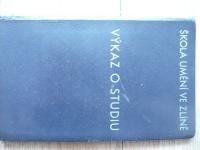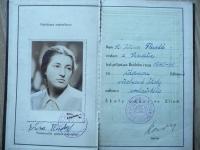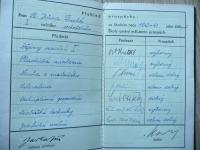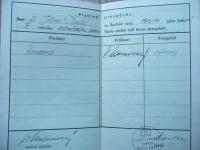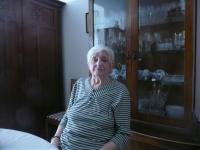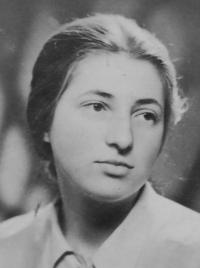When you’re at the top, there is much flattery. But when you fall, there are few who will help you, stay true to you, own up to you.

Download image
Jiřina Doubnerová was born on March 31, 1922 in Vinařice near Kladno. She grew up in the family of a middle-class farmer, the youngest of four children. The family was traditionally Catholic, the witness attended Catholic boarding schools. She studied at the School of Arts in Zlín under Prof. Vincenc Makovský. Upon graduating in 1944 she returned to Vinařice and sought employment as a farm hand on her brother’s farm; at the same time she continued to paint. In 1945 she joined the Communist Party of Czechoslovakia (CPC) and began working as a culture officer in the Party’s regional committee. She became a background assessment officer. However, her oppositional stances caused her to be dismissed. The Party sent her for a one-year internship at the Central Committee of the CPC. After completing it she was sent to the Ministry of Education, where she was in charge of fine artists, she directed the Union of Czechoslovak Fine Artists. In 1953 she was put in charge of historic preservation. In the 1960s she founded the Museum of Alois Jirásek and Mikoláš Aleš and became its director. In 1968 she joined the national committee in Prague 1. In the 1970s she was expelled from the CPC. She went into retirement at the age of fifty-three. She and her husband solved personal financial problems that arose by selling crops at the market in Kladno. In 2005 she presented her literary estate (mainly her correspondence with L. Fuks, J. Seifert, L. Halas, and her prints and photographs) to the Museum of National Literature.
